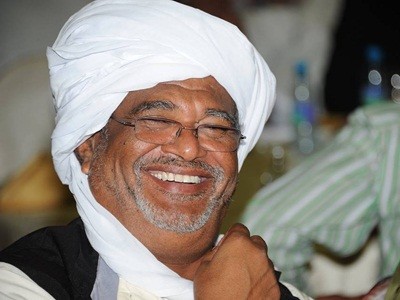Kamil Idris

By Dr. Abdullatif Al-Bony
I find myself extremely surprised by the media explosion that followed the appointment of Kamil Idris as Prime Minister. All the keyboards went wild… there were the critics, the mockers, the confused, and the supporters — even the neutral ones, who usually don’t express clear opinions, got to typing. This is the curse of social media and what’s now called the “communications revolution” — no one wants to stay silent, and so the timeline got flooded with Kamil Idris.
Anyone content with just reading the media storm would think that the position of Prime Minister in Sudan is one of great power and prestige, even though in reality, this position has never significantly changed the deteriorating Sudanese situation. Name me one Prime Minister who made a real impact — maybe Ismail al-Azhari, and that was only because he happened to be in office at the time of independence.
And then there’s this whole fuss about Kamil Idris’ certificate — his date of birth or age… forged or real. We, as Sudanese — especially those over 40 — are the last people who should talk about this issue. Most of our certificates are questionable, all marked 1/1 [January 1st] with estimated ages. Changing one’s birth date for school, starting a job, or retirement is normal here — nothing strange or shameful. If Europeans made a big deal about this and called it forgery, that’s their culture. But what about us?
On a personal level, I don’t claim to know Dr. Kamil well, but I’ve met him many times, chatted with him, and accepted a social invitation at his home. He’s a cultured Sudanese man, an academic with impressive credentials that are publicly available. He’s knowledgeable about international politics and its intricacies, thanks to his academic specialization and practical experience.
He gifted me — along with many others — a book titled “Sudan 2025: Evaluating the Path and Dreaming of the Future”, which falls under the field of future studies. Along with the book came an invitation card for its launch at the Friendship Hall. I read the book and attended the event. I even wrote a column about it where I said it fell short of my expectations. It focused more on procedural aspects than substantive ones, as is typical for employees of international organizations who often lean toward formalism. The attention the book received, in my view, fell under the category of “the charm of money.” Still, it can be considered a contribution to the Sudanese library, which is quite poor in future studies.
Kamil Idris, in his capacity as Director General of the World Intellectual Property Organization (WIPO), invited me — along with a few journalists, including Abdullah Adam Khater and Al-Tahir Sati — to visit Geneva, but I declined.
Surely, no one will ask me to nominate someone for the position of Sudan’s Prime Minister today, but if they did, Kamil Idris would not be the first to come to mind. However, since he has already been appointed, I say: his selection was a good one — both for the timing and for who he is. Now is the right time to form a civilian government.



